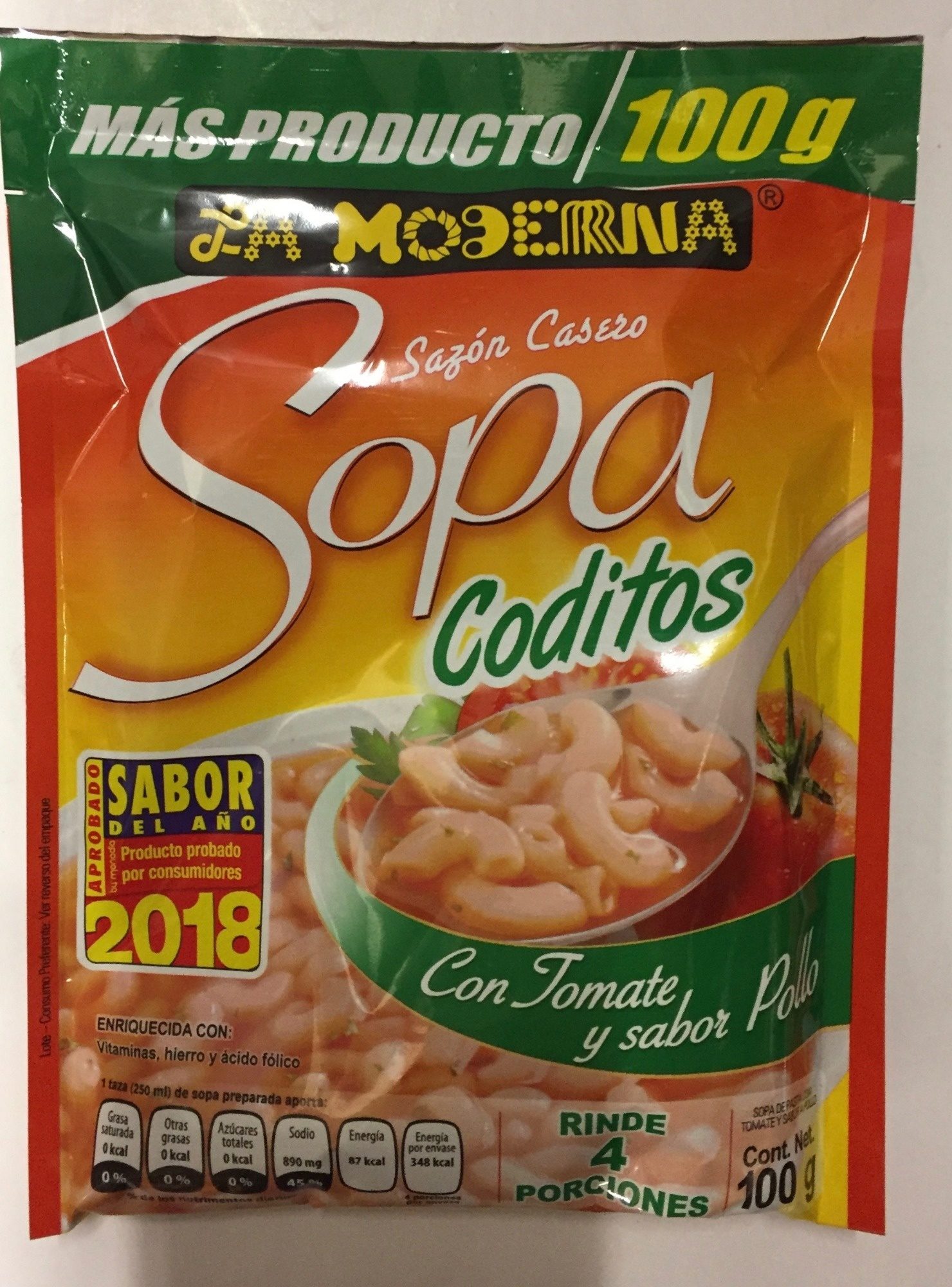sopa coditos con tomate y sabor pollo - La moderna - 100 g
This product page is not complete. You can help to complete it by editing it and adding more data from the photos we have, or by taking more photos using the app for Android or iPhone/iPad. Thank you!
×
Barcode: 7501018315245 (EAN / EAN-13)
Common name: sopa coditos con tomate y sabor pollo
Quantity: 100 g
Brands: La moderna
Categories: Meals, Dried products, Dried products to be rehydrated, Soups, Dried meals, Dehydrated soups
Origin of ingredients: Mexico
Manufacturing or processing places: México
Countries where sold: Mexico
Matching with your preferences
Environment
Packaging
Transportation
Report a problem
Data sources
Product added on by openfoodfactsmx3
Last edit of product page on by packbot.
Product page also edited by openfoodfactsmx.
If the data is incomplete or incorrect, you can complete or correct it by editing this page.






